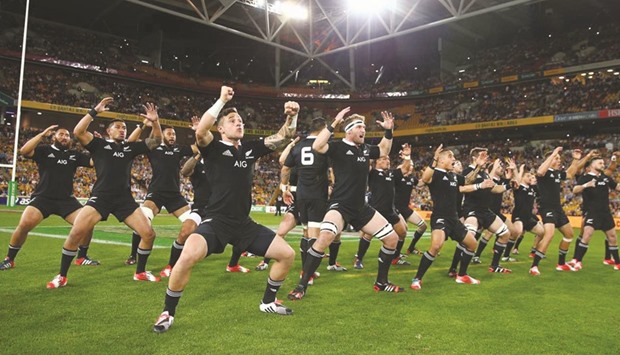The All Blacks and a revitalised England dominated world rugby in 2016, boding well for what could be an epic British and Irish Lions tour of New Zealand next year.
Even the most optimistic observer would have bet on the All Blacks suffering after losing a combined total of 589 caps when they waved farewell to iconic skipper Richie McCaw, emblematic goal-kicking playmaker Dan Carter, Keven Mealamu, Conrad Smith and Ma’a Nonu after bagging a second successive World Cup in October 2015.
It was that tournament in which England spectacularly underperformed, their failure to get out of their pool — the first ever by a host country — hastening the departure of Stuart Lancaster and ushering in pragmatic Australian Eddie Jones.
From different angles, the two leading sides in world rugby hit 2016 running, both ending the year with 13 Test victories.
New Zealand racked up a record-equalling 18 Test wins, started in 2015, a sequence ended by a 40-29 defeat by Ireland in Chicago in November. England, for their part, finished the year undefeated, a first since 1992.
Under Jones, who had coached Japan at the World Cup — notably to the upset victory over South Africa, England bagged their first Six Nations Grand Slam since 2003 and won a first-ever Test series in Australia in a dynamic 3-0 whitewash.
The All Blacks completely dominated the Rugby Championship, winning the southern hemisphere’s elite round-robin tournament with two rounds still to play, averaging 44 points a match and a winning margin of 30.
Among their victories was a memorable 42-9 stuffing of the Wallabies and a record 57-15 away victory over South Africa.
“To come out and do what we’ve done this year, lose just the one match, play some good rugby at times, to stand up under pressure late in the season when fatigue is a big factor, I’m very proud of our team,” said All Blacks coach Steve Hansen, who gave starts to 20 players who didn’t go to the World Cup.
Indeed, the Kiwi factory has not relented in producing some fantastically talented players.
How many other countries would cope with the departure of players of the quality and experience as Carter, Nonu and Smith in the backline? Not many, but up stepped Beauden Barrett, Anton Lienert-Brown, Malakai Fekitoa and Ryan Crotty, all looking like seasoned All Black pros.
McCaw might have gone off to pilot helicopters, but No 8 Kieran Read has assumed the captain’s duties with aplomb and the openside flank has been successfully occupied by Matt Todd, Sam Cane and Liam Squire.
For England, it was more of a mental change of attitude under Jones, rather than a change in the squad Lancaster struggled to get the best out of.
A good dose of arrogance and self-confidence has transformed the Red Rose team, the likes of James Haskell and the Vunipola brothers thriving under Jones’ no-nonsense approach in which no player is guaranteed a place.
“The only record we are interested to beat is to be the number one team in the world and to do that we have to win the World Cup,” said Jones. The Australian added that he’d be happy for his team to play the All Blacks “tomorrow”.
But they won’t. That will fall to the British and Irish Lions on a 10-match, three-Test tour, coached by Wales’ Kiwi-born Warren Gatland, who successfully led the amalgamated team to a series win over Australia in 2013.
“In every position they’ve got real depth,” Hansen said. “These guys are going to be able to play a really strong midweek team and also have a very strong Test team who are going to be fresh and ready to rumble.”
2016 also marked the reappearance of rugby at the Olympics, the seven-a-side form of the game debuting at the Rio Games. Fiji ran out convincing winners in the men’s competition, beating Britain in the final, while Australia trumped over New Zealand for the women’s gold.
English champions Saracens beat Top14 winners Racing92 21-9 to win European Champions Cup, while Connacht surprised Leinster to claim the Celtic League title.
Hurricanes won their maiden Super Rugby title, beating the Lions 20-3, with two other Kiwi sides in the semi-finals — the Chiefs and Highlanders, a telling reminder of New Zealand’s strength in depth.

New Zealand All Blacks dominated world rugby in 2016, racking up a record-equalling 18 Test wins, started in 2015 u2014 a sequence that ended with a 40-29 defeat to Ireland in Chicago in November.
